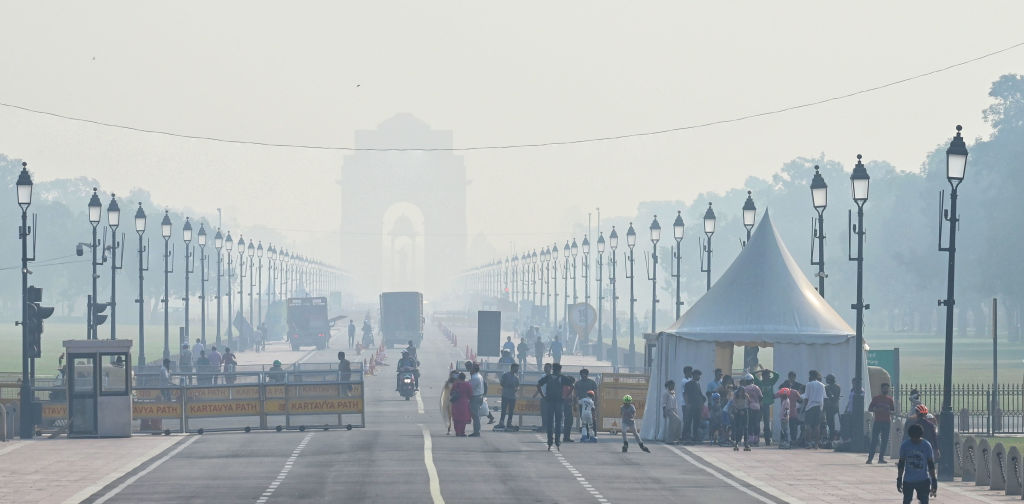Delhi’s air quality remained in the ‘very poor’ category for a second consecutive day on Tuesday, with the Air Quality Index (AQI) dropping to 385.
Thick smog covered several areas, including Anand Vihar, Kalkaji, Nehru Place, and Akshardham Temple, while Ghazipur was shrouded in a dense haze, significantly reducing visibility.
The Central Pollution Control Board (CPCB) has warned that the hazardous air quality poses serious health risks, particularly for those with respiratory conditions. Air pollution levels are expected to stay elevated unless weather conditions improve.
To curb dust pollution, the Public Works Department began water sprinkling in several areas of the city in the morning.
On Monday, the Commission for Air Quality Management (CAQM) enforced Stage II of the Graded Response Action Plan (GRAP) across Delhi-NCR after the AQI fell into the ‘very poor’ range.
“As per the dynamic model and forecasts for weather and air quality provided by IMD/IITM, there is a likelihood that the daily average AQI of Delhi will remain in the ‘very poor’ category (AQI 301-400) in the coming days due to unfavorable meteorological and climatic conditions,” said a release from the Ministry of Environment, Forest and Climate Change.
Stage II of GRAP includes an 11-point action plan, which includes mechanical and vacuum sweeping of roads, intensified inspections at construction and demolition sites, water sprinkling on identified roads, and proper disposal of dust.
The CAQM has urged citizens to use public transport, limit the use of personal vehicles, and regularly replace air filters in their vehicles. It has also advised against activities that worsen pollution such as open burning of solid waste and biomass.














